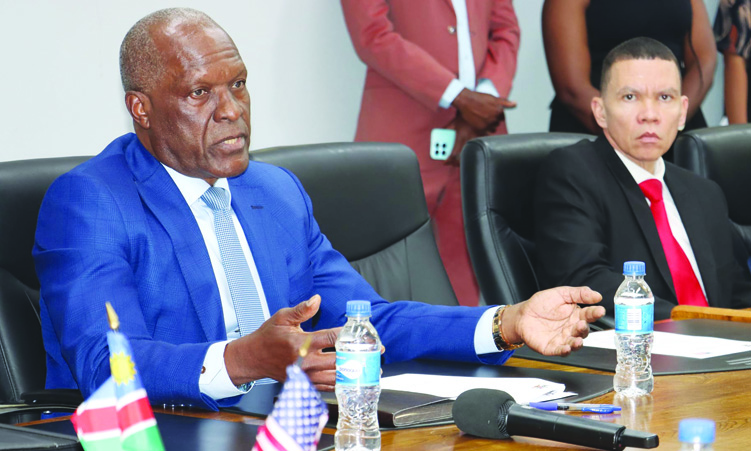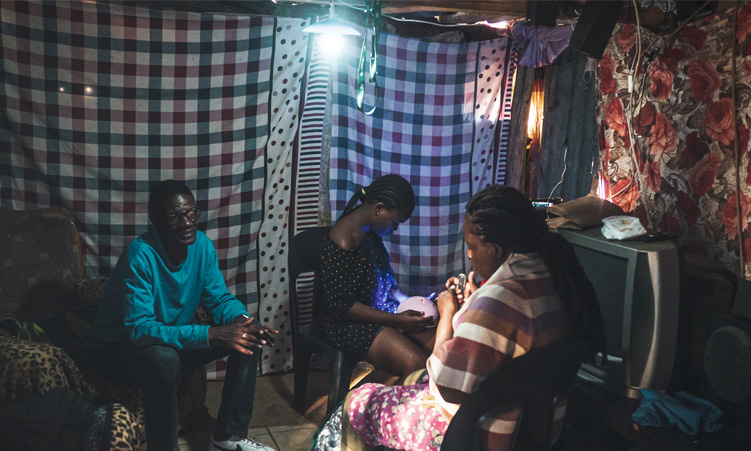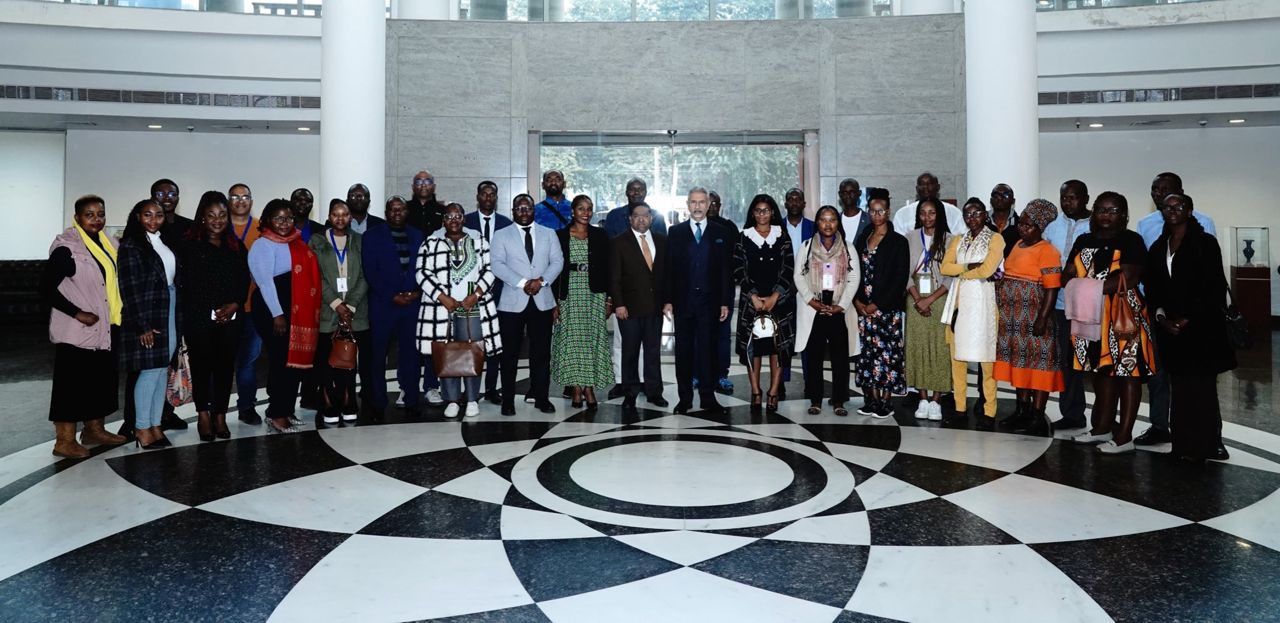…Alweendo warns power distributors over high tariffs
Mines and energy minister Tom Alweendo says the electricity sector must tread carefully to balance the cost of electricity so that it is affordable for ordinary Namibians.
Alweendo notes that while Namibia is pushing for universal access to electricity, many households are already connected to the grid, but unable to afford the basic right to energy.
“We already have evidence of how our people are struggling to pay for electricity.
A case in point is the Northern Regional Electricity Distributor (Nored) that came to our ministry, informing us about households that are connected to the grid, but not consuming electricity, because they simply can’t afford it,” Alweendo says.
He was speaking at the 2024 Namibia Electricity Supply Industry Forum held at Otjiwarongo yesterday.
Alweendo said many ordinary citizens have a low income base and limited ability to pay.

“Even if we extend the grid, we cannot realistically expect some of our people to pay the connection fees. Thus, we have a macroeconomic task of creating jobs and income generating opportunities in our country and across towns, settlements and villages.”
Local authorities have consistently failed to pay their dues to NamPower, exacerbating an already delicate situation, Alweendo said.
“On the other hand, NamPower continues to be saddled with debt owed by local authorities and by Nored itself.
One of our deputy directors was complaining about the lack of return on investments. Therefore, as much as we pursue access for all, we also have to be realistic in our pursuit,” Alweendo said.
Currently, the government has committed to universal electricity access by 2040, through the National Electrification Policy.
He said in order to ensure universal access to electricity is achieved, the use of artificial intelligence (AI) and geographic information systems is needed.
“AI can help us identify where grid connections make sense and where alternative solutions, like solar mini-grids and home systems are more viable. Smart platforms can analyse data to tell us how we can invest optimally in electrification and reduce opportunity costs,” Alweendo said.
Instead of extending the grid everywhere, Alweendo said the government can use geo-data to prioritise localities where demand justifies the cost.
“However, given that this is social investment, some communities will have to be heavily subsidised,” he said.
Alweendo noted that while AI is important, it should not be used to replace human jobs.
“It’s great to have machines that can predict electricity demand and optimise the grid, but not if it comes at the cost of sidelining our engineers. So, it is important that we ensure that we use AI to complement, but not to replace, human expertise,” Alweendo said.

Otjozondjupa governor James Uerikua called on Alweendo, the Electricity Control Board (ECB) and the regulated entities to work together to find lasting solutions to electricity affordability.
“Many Namibians have expressed the need for tariff harmonisation across various towns and regions. It is a real inconvenience felt by Namibians and the overall hope is that it will be addressed,” Uerikua said.
Uerikua noted that the Otjozondjupa region alone has ongoing challenges with electricity access across its seven constituencies, along with the persistent struggles faced by nine settlements still lacking electricity supply.
Meanwhile, ECB chief executive Robert Kahimise, also speaking at the event, said the impact of AI on electricity regulation will be profound.
He said for regulators, AI will provide tools for better data analysis, enabling more informed decision-making and proactive management of electrical harmonics.
For licensees, AI can enhance operational efficiency and reduce costs associated with harmonic mitigation, he said.
“Consumers will benefit from improved power quality and reliability, leading to a more stable electricity supply,” Kahimise added.
Stay informed with The Namibian – your source for credible journalism. Get in-depth reporting and opinions for
only N$85 a month. Invest in journalism, invest in democracy –
Subscribe Now!







